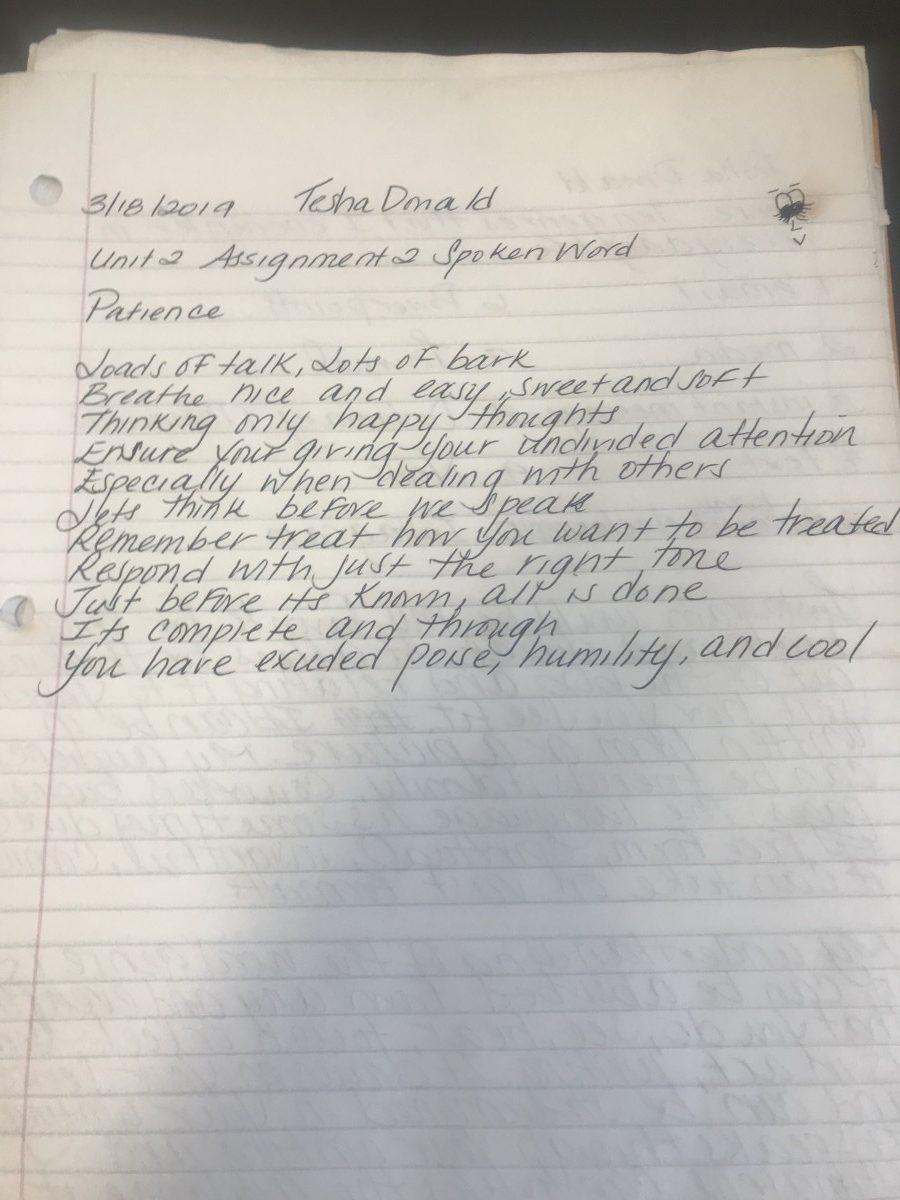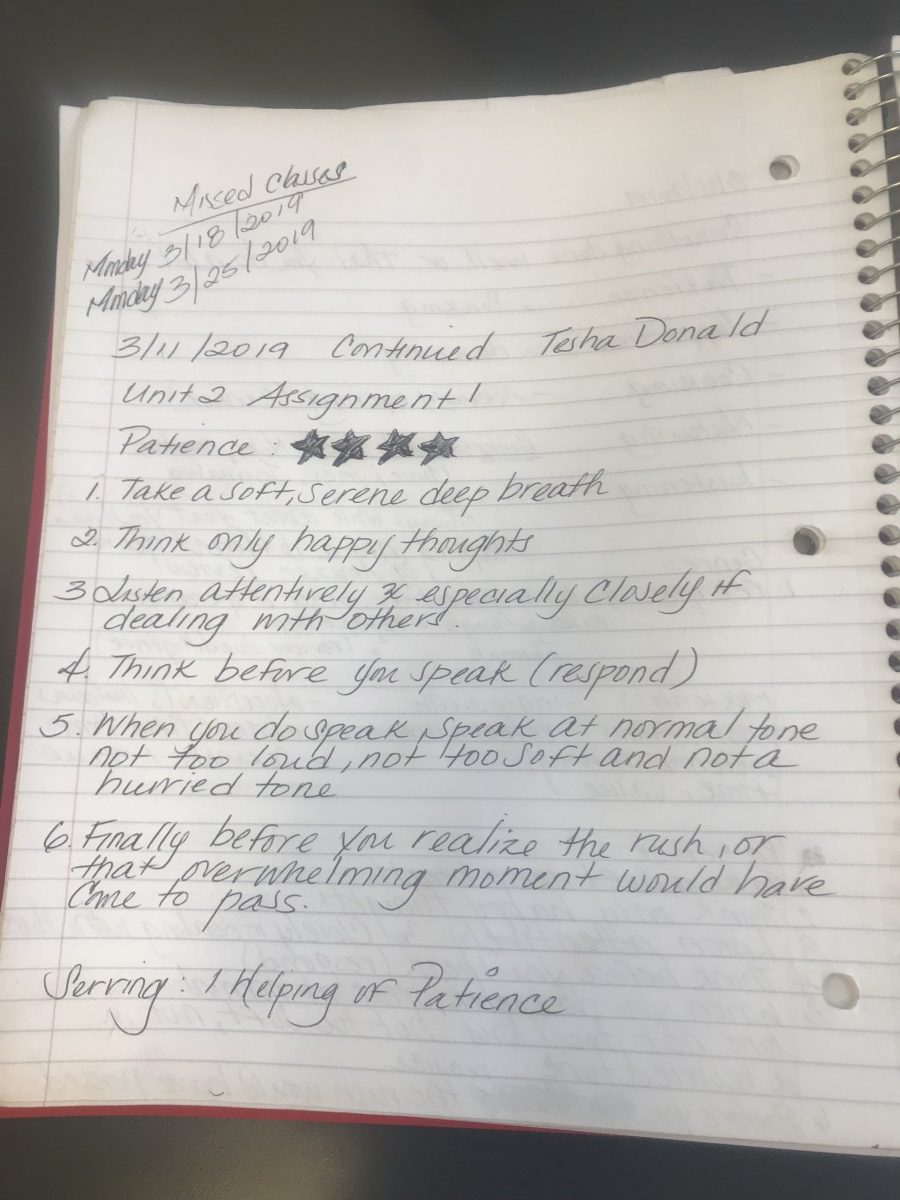Author: Tesha (Page 2 of 3)
Tesha Donald
ENG 1121 E106
Professor: Schmerler
March 11, 2019
Reading 2 is an article called “Navigating Genres” by a professor named Kerry Dirk. The link is here: Navigating Genres.
After completing Reading 2, please answer the following in writing. You can write in your notebooks for now, but be ready to post your responses to Open Lab under the same category soon after our next class:
1) This article (though somewhat old) mentions Facebook posts as a kind of genre. Can you briefly describe how comfortable you feel composing a piece of writing in this genre? Do you feel more comfortable than someone much older than you — your grandmother, for instance? Why do you think this older person might not write as well in Facebook as you do? What are some of the mistakes they might make? 2) Dirk gives a few examples of titles in The Onion (a newspaper that was founded in 1988 at a college, btw). What was your favorite title? 3) On page 258, Dirk describes the rules we carry around in our head before we start writing in a particular genre. What are some of the rules you carry around in your head? Is there a particular genre in which you struggle to write?
When you think of Facebook as a genre, it is not necessarily formatted or outlined in a particular way. Writing in this genre would be easy to write, most importantly because if your page is privatized then you generally know your audience as family, friends, coworkers and perhaps associates. You also know yourself, are you writing to get a response or are you writing to receive feedback or give a sneak peak in on your everyday life. In general everyone writes in a different way on their Facebook. When you speak of older generations, as someone who is younger I am a bit more tech savvy as it pertains to online social media so speaking to my audience might be easier for me versus my grandmother who will say she cannot see or she may need guidance. Even more interesting, my grandfather would say something along the lines of, “I do not have time for such nonsense” or “idle hands make fretful minds”. They would not know where to log in, how to submit or where to go. If they even could they would call for one of the grandchildren to type for them. More than likely they are not going online, they barely want to use a cell phone.
My favorite example in the titles would have to be “Amazon.com Recommendations Understand Area Woman Better Than Husband”. The slight ridicule is implying that married men have a hard time understanding their wives. I thought that was little funny and dramatic. Some rules I utilize in my writing is minimizing starting sentences with I. Writing should have structure start point such as an introduction and end point. Definitely the rule about not beginning a sentence with a coordinating conjunction. These are all good rules I use in everyday writing. Believe it or not I even use this when writing my work emails. I have done a lot of writing in my time and never particular struggle until I arrived to this class. I think writing with restrictions is a little difficult for me. I like writing free form and then going back to see the end result. In the case of writing with a word cap limit that would pose the most difficulty.
Tesha Donald
ENG 1121 E106
Professor: Schmerler
March 11, 2019
English Sh@$%y First Drafts Response
Re: “S@#$$y First Drafts” Response
After completing Reading 1 please answer the following and post your responses in Open Lab.
1) How many drafts do you typically make of a paper/piece of writing? Do you write a “down draft,” an “up draft,” and a “dental draft” like Lamott says? Were you surprised at her chapter’s title? Do you think you will have to change the way you write a lot if you decide to write a “shitty first draft”?
Typically there may be a few drafts, sometimes maybe more than three. The title did not catch me off guard but I do not necessarily think that it’s a bad first draft I think it makes mention of not the best first draft. Writing sometimes take so much work and effort and for me when I write there is always a piece of me so I just want my reader to be captivated by it all. When reading my work I want you to feel something and perhaps get to know me a little better. I feel in writings there is always a piece of me left with the reader. I do not think I change a lot I think I make adjustments often to my writing after reviewing the first draft. Sometime I find that even in the first draft there are things I just might not want to let go and by the final submission I would have tweaked it so much, why did I even need it in the first place? Writing if there is no intensity I do not want it.
After reviewing the assigned articles they both covered rhetorical writing. They both outline the format and structures used to have what is to be considered good writing. The article “Teaching Rhetorical Analysis to Promote Transfer of Learning” spoke of how to evoke writers to be passionate about their writings in such a manner that there is extreme emphasis of this placed in their work. Traditional writings did not demand this of writers. Even though both writings outline structure it still leaves room for the writer to be free formed in their delivery.
Structuring keeps the reading easily able to follow and that it is clear and concise. Generally I believe writing should just flow at least when I am writing thought just over pour.
I am the type to write continuously and then go back and read my thoughts. Sure enough there will be tons of mistakes, hopefully not too much but sometimes there is just so much going on inside this head of mine. Writing has always been a way to release these thoughts.
Both articles touched the topics ethos, pathos and logos. I always thought that if your writing was good enough you would never have to specifically focus on how to convince or persuade the reader. If you writings are true, true to heart, desires, dreams or whatever inspires that everything else would fall into place. So taking a look at how these were defined I found that in my writings you will find these elements naturally. These writings both place emphasis of growth in writing no matter the style or format chosen.
I think the best works utilize bits and pieces of persuasion. Ultimately it states the conclusion the author wants the reader to arrive at, after reading their point of view. It is more than just a view point, it’s the visualization of seeing something through someone else’s eyes. It does not put less value if you disagree but it should have you think beyond and outside of the box. The articles place emphasis on how they grow the writer utilizing structure but in a different way. I think in relation to ethos, pathos and logos it speaks of the person’s character. In everyone’s writings there is a piece of them lying underneath and when the reader analyzes, looks over or tries to have an understanding they draw a conclusion based on their prior experiences and influences.
I am still here trying to piece them all together, to try to have a better understanding on how would you know how much to put in your writing, should you have balance? Is there dependency on the topic? Hopefully I can gain more insight as I grow through my writings to see where I am more aligned. Is it truly all about growth in your works or the underlying’s of who you are through your work?
Both articles very insightful, a little long but at the very end it shows you how writings can be broken down and where our thoughts are derived from.
List of Past Readings :
Children of Fire : A History of African Americans
Caribbean Currents
Past Things Watched
James Baldwin from “The Negro and the American Promise”
Current Readings:
Essentials of Supply Chain management
Strategic management in Action
Shopper, Buyer & Consumer Behavior Theory
Things Having Influence:
Music Influence is the greatest in my life : Bob Marley , Buju Banton, Sizzla , Garnett Silk Capelton, Beres Hammond , Jah Cure some of my favorite artists you will find me listening to.
Fear of Loss of The Fantastic 4
Loss is the hardest to deal with. Life without them, the fantastic four- children.
Oh how I adore, to think of all that I bore. It has never been of ease.
How much it took, with all that shook, within me. Turned inside out , round and round -labor the hardest task in life.
No smiles , dramatic memories missed time endless tears heartaches all that is what is considered normal.
Accolades I hold dear inside. I reviewed our ride , what a loss that would be, never to see hold hear -Loss is what I fear.


 Unit 2 Assignment 1
Unit 2 Assignment 1



